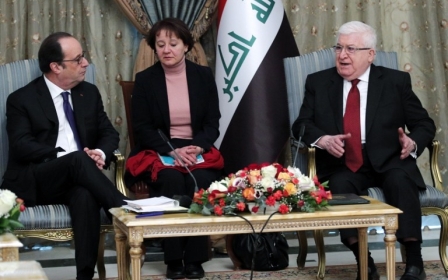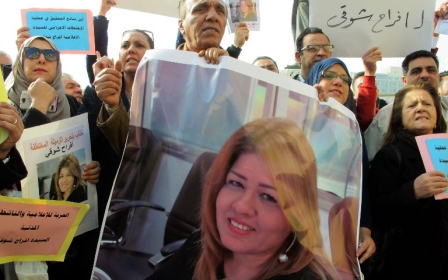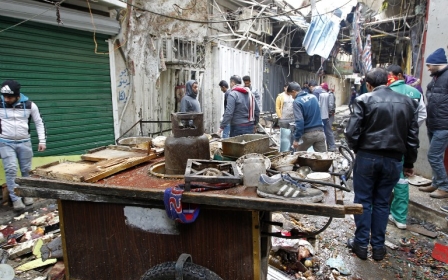IS claims Baghdad bomb blasts that killed scores
The Islamic State (IS) group has claimed responsibility for a second car bomb that hit the Iraqi capital Baghdad on Monday afternoon, hours after they claimed responsibility for a suicide car bomb attack in Sadr City earlier that killed at least 39 people and left more than 60 wounded. They also said they conducted the attacks on a central market in Baghdad on Saturday, which killed 27 people.
Early reports suggested that eight people were killed and 15 wounded by a blast in the southern district of Zafraniya, for which there was no immediate claim of responsibility.
Many of the victims were day labourers waiting for jobs at an intersection in the majority Shia neighbourhood in the northeast of the capital.
Social media pictures posted soon after the blast showed a large plume of black smoke billowing into the sky and seriously injured people being evacuated.
At least nine of the victims were women in a passing minibus, according to Reuters.
"The terrorists will attempt to attack civilians in order to make up for their losses, but we assure the Iraqi people and the world that we are able to end terrorism and shorten its life," Prime Minister Haider al-Abadi told reporters after meeting with French President Francois Hollande, who is visiting Iraq.
"There was a terror attack on Mutawakil police station, now the Iraqi forces are besieging them," interior ministry spokesman Saad Maan told reporters.
The Islamic State group claimed responsibility for the attack in central Samarra, a city 70 miles north of Baghdad, via its propaganda agency Amaq.
Maan said the attackers holed up inside the police station were exchanging fire with the security forces besieging them.
A police major from Salaheddin province where Samarra is located said five attackers had already been killed and added that reinforcements had been deployed.
Samarra is home to a major Iraqi security headquarters and to an important Shiite shrine where a 2006 bombing touched off two years of sectarian bloodletting.
Middle East Eye propose une couverture et une analyse indépendantes et incomparables du Moyen-Orient, de l’Afrique du Nord et d’autres régions du monde. Pour en savoir plus sur la reprise de ce contenu et les frais qui s’appliquent, veuillez remplir ce formulaire [en anglais]. Pour en savoir plus sur MEE, cliquez ici [en anglais].




